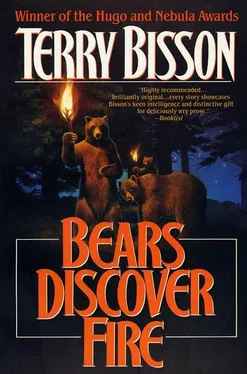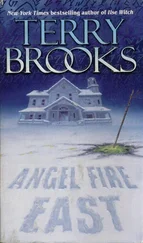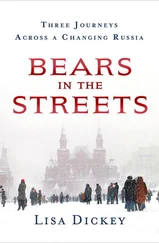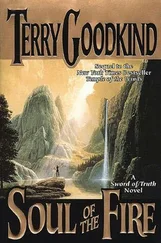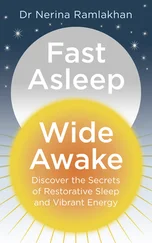The King’s address seemed to have a calming effect over the next few days. The streets of Brighton grew quiet once again. The Esplanade and the Boardwalk still saw a few video crews which kept the fish and chips stalls busy; but they bought no souvenirs, and the gift shops all closed again one by one.
“Woof,” said Anthony, delighted to find the boys back on the cricket ground with their kites. “Things are getting back to normal,” said Mr. Fox. But were they really? The smudge on the eastern horizon was Brittany, according to the newsmen on the telly; next would be the open sea. One shuddered to think of it. Fortunately, there was familiarity and warmth at Mrs. Oldenshield’s, where Lizzie was avoiding the Eustace family lawyer, Mr. Camperdown, by retreating to her castle in Ayr. Lord Fawn (urged on by his family) was insisting he couldn’t marry her unless she gave up the diamonds. Lizzie’s answer was to carry the diamonds with her to Scotland in a strongbox. Later that week, Mr. Fox saw the African again. There was a crowd on the old West Pier, and even though it was beginning to rain, Mr. Fox walked out to the end, where a boat was unloading. It was a sleek hydrofoil, with the Royal Family’s crest upon its bow. Two video crews were filming, as sailors in slickers passed an old lady in a wheelchair from the boat to the pier. She was handed an umbrella and a tiny white dog. The handsome young captain of the hydrofoil waved his braided hat as he gunned the motors and pulled away from the pier; the crowd cried “hurrah” as the boat rose on its spidery legs and blasted off into the rain.
“Woof,” said Anthony. No one else paid any attention to the old lady, sitting in the wheelchair with a wet, shivering dog on her lap. She had fallen asleep (or perhaps even died!) and dropped her umbrella. Fortunately it wasn’t raining.
“That would be the young Prince of Wales,” said a familiar voice to Mr. Fox’s left. It was the African. According to him (and he seemed to know such things), the Channel Islands and most of the islanders, had been left behind. The hydrofoil had been sent to Guernsey at the Royal Family’s private expense to rescue the old lady, who’d had a last-minute change of heart; perhaps she’d wanted to die in England. “He’ll be in Portsmouth by five,” said the African, pointing to an already far-off plume of spray.
“Is it past four already?” Mr. Fox asked. He realized he had lost track of the time.
“Don’t have a watch?” asked the girl, sticking her head around the African’s bulk.
Mr. Fox hadn’t seen her lurking there. “Haven’t really needed one,” he said.
“You bloody wish,” she said.
“Twenty past, precisely,” said the African. “Don’t mind her, mate.” Mr. Fox had never been called “mate” before.
He was pleased that even with all the excitement he hadn’t missed his tea. He hurried to Mrs. Oldenshield’s, where he found a fox hunt just getting underway at Portray, Lizzie’s castle in Scotland. He settled down eagerly to read about it.
A fox hunt! Mr. Fox was a believer in the power of names.
The weather began to change; to get, at the same time, warmer and rougher. In the satellite pictures on the telly over the bar at the Pig & Thistle, England was a cloud-dimmed outline that could just as easily have been a drawing as a photo. After squeezing between Ireland and Brittany, like a restless child slipping from the arms of its ancient Celtic parents, it was headed south and west, into the open Atlantic. The waves came no longer at a slant but straight in at the seawall. Somewhat to his surprise, Mr. Fox enjoyed his constitutional more than ever, knowing that he was looking at a different stretch of sea every day, even though it always looked the same. The wind was strong and steady in his face, and the Boardwalk was empty. Even the newsmen were gone—to Scotland, where it had only just been noticed that the Hebrides were being left behind with the Orkneys and the Shetlands. “Arctic islands with their own traditions, languages, and monuments, all mysteriously made of stone,” explained the reporter, live from Uig, by remote. The video showed a postman shouting incomprehensibly into the wind and rain.
“What’s he saying?” Mr. Fox asked. “Would that be Gaelic?”
“How would I be expected to know?” said Harrison.
A few evenings later, a BBC crew in the Highlands provided the last view of the continent: the receding headlands of Brittany seen from the 3,504-foot summit of Ben Hope, on a bright, clear day.
“It’s a good thing,” Mr. Fox joked to Anthony the next day, “that Mrs. Oldenshield has laid in plenty of Hyson.” This was the green tea Mr. Fox preferred. She had laid in dog biscuits for Anthony as well. Lizzie herself was leaving Scotland, following the last of her guests back to London, when her hotel room was robbed and her strongbox was stolen, just as Mr. Fox had always feared it would be. For a week it rained. Great swells pounded at the seawall. Brighton was almost deserted.
The faint-hearted had left for Portsmouth, where they were protected by the Isle of Wight from the winds and waves that struck what might now be properly called the bow of Britain.
On the Boardwalk, Mr. Fox strolled as deliberate and proud as a captain on his bridge. The wind was almost a gale, but a steady gale, and he soon grew used to it; it simply meant walking and standing at a tilt. The rail seemed to thrum with energy under his hand. Even though he knew that they were hundreds of miles at sea, Mr. Fox felt secure with all of England at his back. He began to almost enjoy the fulminations of the water as it threw itself against the Brighton seawall.
Which plowed on west, into the Atlantic.
With the south coast from Penzance to Dover in the lead (or perhaps it should be said, the bow) and the Highlands of Scotland at the stern, the United Kingdom was making almost four knots. Or 3.8 to be precise.
“A modest and appropriate speed,” the King told his subjects, speaking from his chambers in Buckingham Palace, which had been decked out with nautical maps and charts, a lighted globe, and a silver sextant. “Approximately equal to that of the great ships-of-the-line of Nelson’s day.”
In actual fact, the BBC commentator corrected (for they will correct even a king), 3.8 knots was considerably slower than an eighteenth-century warship. But it was good that this was so, Britain being, at best, blunt; indeed, it was estimated that with even a half knot more speed, the seas piling up the Plymouth and Exeter channels would have devastated the docks. Oddly enough, it was London, far from the headwinds and bow wave, that was hardest hit. The wake past Margate, along what used to be the English Channel, had sucked the Thames down almost two feet, leaving broad mud flats along the Victoria Embankment and under the Waterloo Bridge. The news showed treasure seekers with gum boots tracking mud all over the city, “a mud as foul-smelling as the ancient crimes they unearth daily,” said BBC. Not a very patriotic report, thought Mr. Fox, who turned from the telly to Harrison to remark, “I believe you have family there.”
“In London? Not hardly,” said Harrison. “They’ve all gone to America.”
By the time the Scottish mountaintops should have been enduring (or perhaps “enjoying” is the word, being mountains, and Scottish at that) the first snow flurries of the winter, they were enjoying (or perhaps “enduring”) subtropical rains as the United Kingdom passed just to the north of the Azores. The weather in the south (now west) of England was springlike and fine. The boys at the cricket ground, who had usually put away their kites by this time of year, were out every day, affording endless delight to Anthony, who accepted with the simple, unquestioning joy of a dog, the fact of a world well supplied with running boys. Our Day’s Log, the popular new BBC evening show, which began and ended with shots of the bow wave breaking on the rocks of Cornwall, showed hobbyists with telescopes and camcorders on the cliffs at Dover, cheering “Land Ho!” on sighting the distant peaks of the Azores.
Читать дальше
